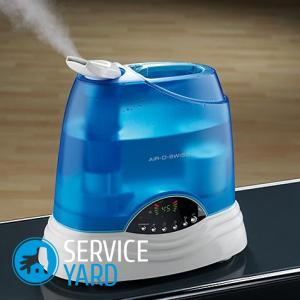Convector or oil heater - which is better?
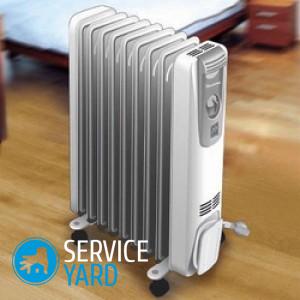
Today, for domestic purposes, oil heaters and convectors are often used. In principle, they have a similar principle, according to which the air masses are heated, but, despite this, warm air moves in them differently. That is why many consumers before buying ask the question: convector or oil heater - which is better? In this article, we will weigh all the pros and cons of these devices, draw objective conclusions.
to contents ↑Features of oil heaters
Oil-type devices are used to heat the air temperature in a house or apartment. Their installation does not require any special knowledge or skills. It is enough to plug the device into a power outlet, put it closer to the place that needs to be heated, and you're done!
Important! Due to the simple design, such devices rarely cause breakdowns associated with an electrical circuit.
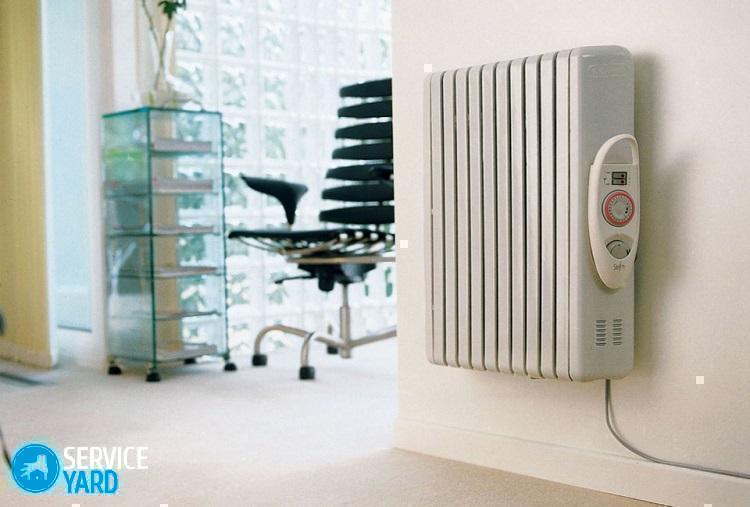
Device
The radiator base is a metal reservoir with mineral oil inside. There are heating elements in the oil itself. Devices of this type are equipped with rheostats for temperature control, compartments for the power cord and the function of protection against electrical overheating.
Important! Some models also have sensors that detect deviations from the horizontal, due to which an accidentally overturned device automatically turns off. In addition, they are protected against oil splashes.
To determine which heater is better - oil or convection, it is necessary to study the pros and cons of both options.

Advantages of oil devices:
- Silent work.
- Affordable cost.
- The ability to easily move the device over long distances.
- The presence of a thermostat, which is responsible for setting the required temperature automatically, maintains it at the same level.
- Some models have a timer, that is, it allows you to turn on the device at the appointed time.

Important! To find out what kind of power a heater is needed to sufficiently warm the entire room, you need to use one unspoken rule: if the ceilings in the room are no higher than two meters, its area does not exceed 10 square meters, then a radiator with a power of 1 kilowatt is enough.
Today, mainly produce devices with a power range from 1 to 2.5 kilowatts.
to contents ↑Features of convectors
Convectors differ from oil models in the shape of the body - they are smooth, flat. They have a room thermostat, due to which the set temperature mode is always maintained in the room.
Important! Convectors are mainly attached to walls, unlike oil models, which in most cases are floor mounted. But among them there are also floor options with wheels for movement.
Oil heaters radiate heat, while convectors practically do not supply it - it is felt a little from the front panel. They warm the air due to the heat exchange between hot and cold air masses. Air is constantly moving along the surface of the device. They are practically inaudible, since they work due to air convection. They uniformly quickly warm the entire room.
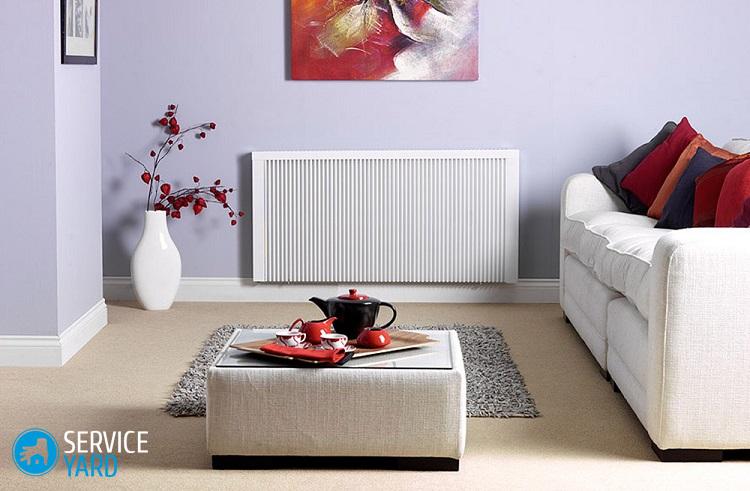
Device
Convectors consist of two elements:
- Convection chamber.
- Heating element integrated in the housing.
The air entering the convector is heated with the help of a heating element. It becomes light, rises, leaves through the upper blinds. The air is heated to the temperature set on the thermostat. It automatically turns on or off the heating elements. The slots located on the front panel are necessary for the release of heated air. Structurally, they are made in such a way that the heat is distributed evenly throughout the room, thereby achieving the maximum level of comfort, warmth, and coziness.
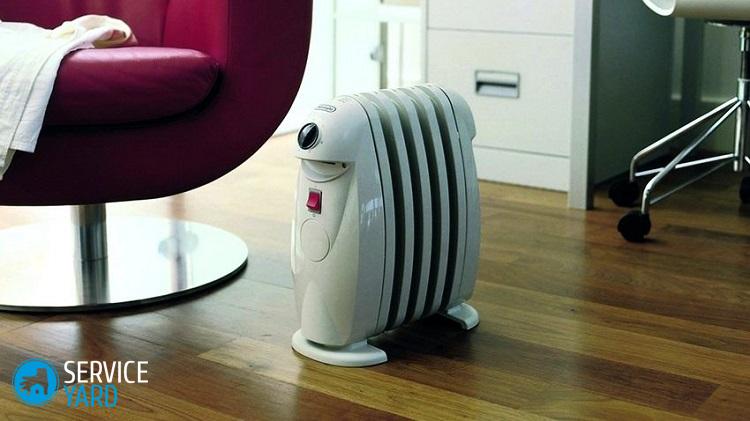
The advantages of convectors
If you have not decided which heater is better - oil or convector, then it's time to familiarize yourself with the advantages of convectors:
- They meet all the requirements of the European standard, are absolutely safe.
- High work efficiency.
- They can be combined into a single modular heating system, if you hang several devices in all rooms in the house. In country houses, in summer cottages they are used as boilers.
- Due to the presence of an electronic thermostat, various operating modes, they can significantly save electricity.
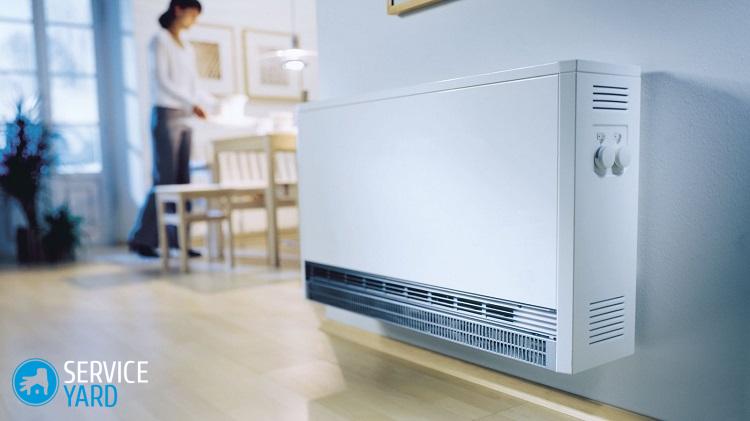
to contents ↑Important! The use of heaters affects the microclimate of the room. Find out all the helpful information on how to make their use safe for your health:
Comparison of oil heaters and convectors
To accurately answer the question of which heater is better - oil or convector, you should compare their main indicators:
- Profitability of use. Oils consume a quarter of electricity more than convection models. Since electricity tariffs are constantly increasing, this fact should not be ignored.
- Heating time to maximum temperature. Oil appliances heat the air in several stages: first the heater is heated by electricity, then it heats the oil, and only it heats the case. Of course, this takes a lot of time. In the convector, the heater immediately heats the case, which is why its efficiency is 95%. But the heating rate also leaves much to be desired.
- Comfort of operation. This parameter refers to the ease of installation and carrying. In this regard, more mobile and convenient convectors. They weigh no more than 10 kg, oil models are heavier and bulky.
- Security. Of course, talking about the safety of hot oil does not even make sense. The case heats up so much that you can get burned. But there are devices equipped with a special protective cover. Convectors are completely safe, they have a protection function, they do not overheat too much.
- Life time. Oil often flows out of heaters due to microcracks. As a result, the devices simply break down, and they most often refuse to repair them. Convectors serve from 10 to 15 years.
- The cost of appliances. Here, oil models break out ahead, because they are much smaller than their “brothers”. But you should not forget about the ratio of quality and price, because high technical indicators should be in the first place.
Important! Having analyzed all of the above, we can conclude that convectors are the best. They are safe, silent, compact, lightweight, gradually replacing short-lived heavy heaters filled with hot oil from offices and apartments.

Rating of the best oil heaters
If even after conducting comparative work, a detailed examination of all the advantages and disadvantages of modern radiators, you decide that the oil cooler is the best for you, then check out the most popular models of this type.
Important! If you visit a store that sells heating equipment, it becomes clear that even products of famous brands are made in China. European goods are rarely seen in shop windows, but they are also more expensive.Experts recommend evaluating oil radiators not by where they are made, but by the reliability and functionality of the device. The most important indicators are the number of sections, power.

Rating of oil heaters that are most often sold:
- DeLongHI GS 770715 - a device consisting of seven sections, designed for a small room, with an area of not more than 15 square meters. It is equipped with a fan and built-in thermostat, has the function of protection against freezing and overheating. Favorite among buyers.
- Mystery MH-7001 - the radiator has seven sections, has a three-stage power regulator, thermostat, and protection against overheating.
- Electrolux EOH / M-1157 - the device is designed to heat one room with an area of not more than 15 square meters. This device also consists of seven sections, its maximum power is 1500 watts. There is the possibility of adjusting the power.
Stock footage
Choosing a heat source for your home, you should not completely trust the rating, because these are the subjective opinions of a certain group of people. To avoid making a mistake during the selection, it is better to consult a specialist: describe to him your requirements for the appliance, tell us about the characteristics of your home that needs additional or independent heating. With this approach, the purchase will be uniquely successful!





